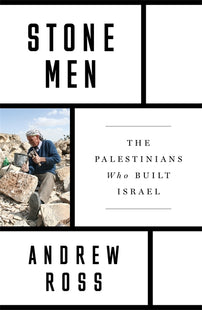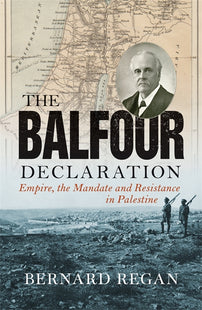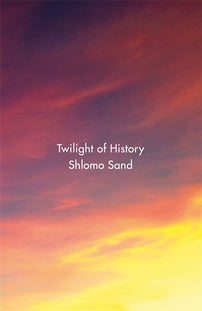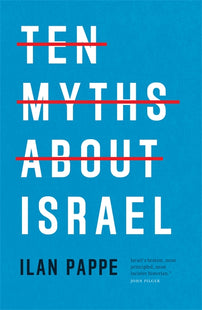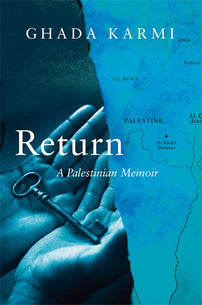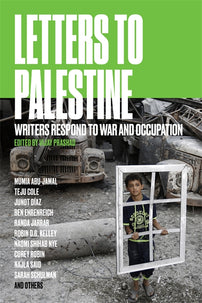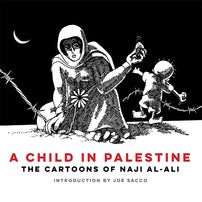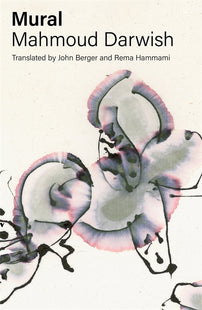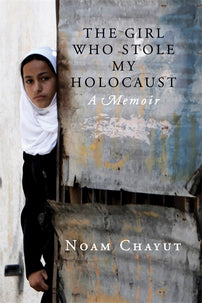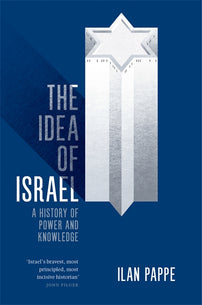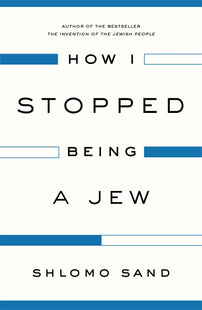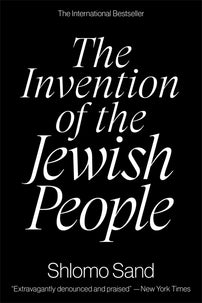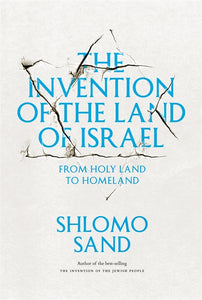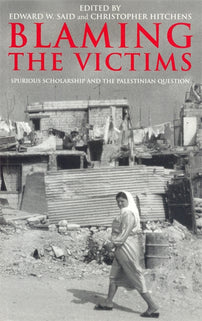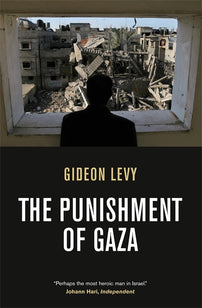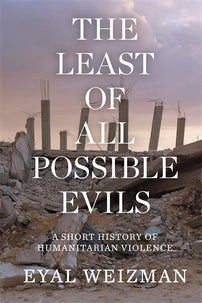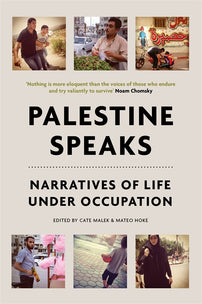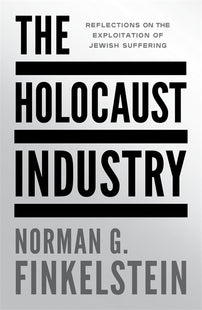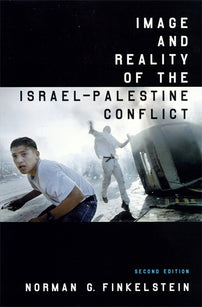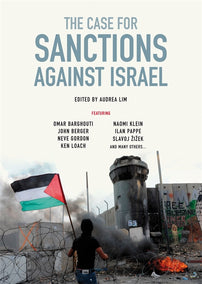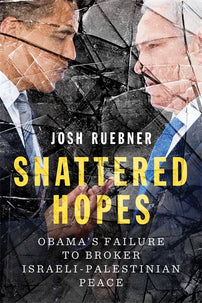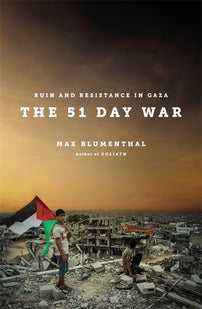Nakba Day Reading List
To commemorate Nakba Day, a reading list on the history of the region and the Palestinian struggle for liberation.

Nakba Day, an annual day of commemoration of the displacement that preceded and followed the Israeli Declaration of Independence in 1948, falls on the 15th of May each year. In an attempt to understand the catastrophe, we bring you a reading list of key books on the struggle for justice in Palestine, from Ghada Karmi, Bernard Regan, Mahmoud Darwish, Naji al-Ali, Ilan Pappe, Edward Said, Shlomo Sand, and more.
“They demolish our houses while we build theirs.” This is how a Palestinian stonemason, in line at a checkpoint outside a Jerusalem suburb, described his life to Andrew Ross. Palestinian “stone men,” using some of the best-quality limestone deposits in the world and drawing on generations of artisanal knowledge, have built almost every state in the Middle East except one of their own. Today the business of quarrying, cutting, fabricating, and dressing is the Occupied Territories’ largest private employer and generator of revenue, and supplies the construction industry in Israel, along with other countries in the region and overseas.
[book-strip index="2" style="buy"]A hundred years after its signing, Bernard Regan recasts the history of the Balfour Declaration as one of the major events in the story of the Middle East. Offering new insights into the imperial rivalries between Britain, Germany and the Ottomans, Regan exposes British policy in the region as part of a larger geopolitical game. Not just a history of states and policies, Regan manages to brilliantly present both a history of people under colonialism and an account of the colonizers themselves.
[book-strip index="3" style="buy"]On its publication in 2009, Shlomo Sand’s book The Invention of the Jewish People met with a storm of controversy. His demystifying approach to nationalist and Zionist historiography provoked much criticism from other professional historians, as well as praise. Drawing on four decades in the field, Sand takes a wider view and interrogates the study of history, whose origin lay in the need for a national ideology. Despite his trenchant criticism of academic history, Sand would still like to believe that the past can be understood without myth, and finds reasons for hope in the work of Max Weber and Georges Sorel.
[book-strip index="4" style="buy"]In this groundbreaking book, published on the fiftieth anniversary of the Occupation, the outspoken and radical Israeli historian Ilan Pappe examines the most contested ideas concerning the origins and identity of the contemporary state of Israel.
He explores the claim that Palestine was an empty land at the time of the Balfour Declaration, as well as the formation of Zionism and its role in the early decades of nation building. He asks whether the Palestinians voluntarily left their homeland in 1948, and whether June 1967 was a war of “no choice.” Turning to the myths surrounding the failures of the Camp David Accords and the official reasons for the attacks on Gaza, Pappe explains why the two-state solution is no longer viable.
[book-strip index="5" style="buy"]Having grown up in Britain following her family's exile from Palestine, doctor, author and academic Ghada Karmi leaves her adoptive home in a quest to return to her homeland. In her journey, she takes the reader on a fascinating journey into the heart of one of the world’s most intractable conflict zones and one of the major issues of our time. Visiting places she has not seen since childhood, her unique insights reveal a militarised and barely recognisable homeland, and her home in Jerusalem, like much of the West Bank, occupied by strangers.
[book-strip index="6" style="buy"]This book traces this swelling American recognition of Palestinian suffering, struggle, and hope, in writing that is personal, lyrical, anguished, and inspiring. Some of the leading writers of our time, such as Junot Díaz and Teju Cole, poets and essayists, novelists and scholars, Palestinian American activists like Huwaida Arraf, Noura Erakat, and Remi Kanazi, give voice to feelings of empathy and solidarity—as well as anger at US support for Israeli policy—in intimate letters, beautiful essays, and furious poems.
“This is a ground-breaking book. For the first time, Western readers are beckoned into Palestinian lives by the graphic warmth, inspiration and horror of the cartoonist Naji al-Ali, whose iconic Hanthala is our witness and conscience, imploring, rightly, that we never forget.”– John Pilger
A major translation of remarkable, late poems by the great Palestinian poet.
“Darwish’s poetry is an epic effort to transform the lyrics of loss into the indefinitely postponed drama of return.”– Edward Said
“This humane journey into the inhumanity of oppression exposes the rawest nerves of the Israeli society and its attitude towards the occupied Palestinians. Very few in Israel would have dared to associate in any way the Holocaust with the occupation, but this bold and sensitive personal account makes it abundantly clear that for Israeli Jews the Holocaust and their policies in Palestine will always be interconnected and inseparable.” – Ilan Pappe
"Pappé places Zionism under an uncompromising lens... The Idea of Israel is a close study of the role of Zionist ideology in the making of modern Israel and of the continuing relevance of this ideology today in politics, the education system, the media, the cinema and Ashkenazi-Sephardi relations." - Avi Shlaim, Guardian
“A discursive yet polemical work that systematically undermines the claim that Jewishness is necessary – let alone sufficient – to justify the claims of the Israeli state to the territory formerly known as Palestine.” - Will Self, Guardian
“Perhaps books combining passion and erudition don't change political situations, but if they did, this one would count as a landmark.” – Eric Hobsbawm, Observer
“His achievement consists in debunking a nationalist mythology which holds sway in large sections of popular opinion. It also normalises Jews, since it challenges the belief in exceptionalism...Truth-telling may be painful but necessary.”– Donald Sassoon, Guardian
“The wide-ranging scope and demythologising structure of Blaming the Victims makes it especially relevant at the present time when the actions of the state of Israel seem to contradict received opinion as to its nature. The book provides a great quantity of information, analyses it convincingly and, through an impressive body of notes on primary and secondary literature, points the reader in the direction of further information.” – Middle East International
“Gideon Levy’s passionate and revealing account is an eloquent, even desperate, call to bring this shocking tragedy to an end, as can easily be done.” – Noam Chomsky
“The most astonishing book on architecture that I have read in years.” – Edwin Heathcote, Financial Times
“Weizman takes his readers on a tour of the visible and invisible ways in which Israel implements its control over Palestinians... Hollow Land is eloquent about the architectural chaos and confusion created by Israel in the Occupied Territories.” – London Review of Books
“Eyal Weizman’s work has become an indispensable source of both insight and guidance in these difficult times. He understands the evolving dynamics of war and sovereignty better than anyone.” – Paul Gilroy, Professor of Social History, London School of Economics
Ghada Karmi's acclaimed memoir relates her childhood in Palestine, flight to Britain after the catastrophe, and coming of age in Golders Green, the north London Jewish suburb. A powerful biographical story, In Search of Fatima reflects the author's personal experiences of displacement and loss against a backdrop of the major political events which have shaped conflict in the Middle East. Speaking for the millions of displaced people worldwide who have lived suspended between their old and new countries, fitting into neither, this is an intimate, nuanced exploration of the subtler privations of psychological displacement and loss of identity.
Too often the everyday lives and voices of the people in Gaza and the West Bank are forgotten. In Palestine Speaks men and women living under the occupation describe in their own words how it has shaped their lives. This includes eyewitness accounts of the attacks on Gaza in 2014.
“The most controversial book of the year.” – Guardian
“His basic argument that memories of the Holocaust are being debased is serious and should be given its due.”– Economist
“Anyone interested in seeing justice brought to the Middle East must read this book.” – Charles Glass
“Provides clear arguments for international sanctions against Israel because of its treatment of the Palestinians. This excellent collection of essays is an essential text for anyone interested in why they should support the movement to boycott Israel. The essays are not just good reading; they are also an eloquent call to the world to give a damn.” – Ron Jacobs, Counterpunch
“This marvelous book looks at one of the thorniest aspects of foreign policy today. It's a book for those who are not content to sit on the sidelines and watch the continuous dispossession of the Palestinian people, committed if not in our name, then with our blessing. Josh Ruebner has offered a badly needed contribution to a discussion that is all too often suppressed in the mainstream media." - Bill Fletcher, Jr., writer/activist, immediate past president of TransAfrica Forum.
Beginning July 8, 2014, Israel launched air strikes and a ground invasion of Gaza that lasted fifty-one days, leaving over 2,000 people dead, the vast majority of whom were civilians. During the assault, at least 10,000 homes were destroyed and, according to the United Nations, nearly 300,000 Palestinians were displaced.
Max Blumenthal was on the ground during what he argues was an entirely avoidable catastrophe. In this explosive work of reportage, Blumenthal reveals the harrowing conditions and cynical deceptions that led to the ruinous war. Here, for the first time, Blumenthal unearths and presents shocking evidence of atrocities he gathered in the rubble of Gaza.
